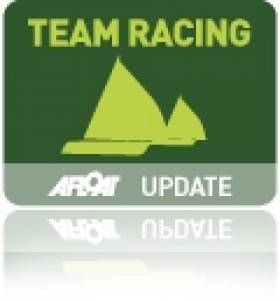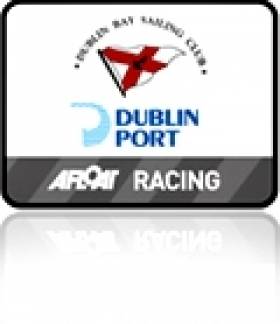Displaying items by tag: Glens
'2k' Format Will be New Lease of Life for Team Racing
Irish team racers, and those whose college sailing days are behind them, can look forward to rediscovering the joys of a new kind of team racing writes our Correspondent, Magheramore.
The Dutch have discovered team racing. They have become very keen on two boat team racing in keel-boats with 30 teams competing in their National Championships. Realising the potential for this version of the sport a major international event is planned in September this year, and there is a bid to run an official World Championships in 2013.
An international circuit is now emerging for this discipline – now known as 2k. Events are planned on the Clyde, in Italy, Poland, England and the Netherlands. The potential is considerable. In many countries sailing centres have fleets of small one design keel-boats already used for match racing. 2K racing increases the number of days these fleets are in competitive use. There is also a well established circuit in the USA, where the Sonar is commonly used. There are even events organised especially for the more mature sailor.
This should be good news for Irish sailors. We have a long tradition of team racing, with predominately university teams competing in Firefly dinghies. In Munster, the group based around Schull Community College has provided a base for schools team racing, and the whole town did a magnificent job of hosting the Worlds last year. In addition, the Royal Alfred Yacht Club has maintained a tradition of team racing in keelboats with the Patriots Cup, not to forget the Glen class in Dun Laoghaire who compete in the Millennium Cup, a 4 boat per team event. Many graduate sailors have moved on to match racing, using the Sailfleet J80s, with some success.
The development of 2k racing is an opportunity for clubs. Team-racing, in all its forms, creates a dynamic within the club, as teams train and compete and socialise. Graduates, who seem to find the Firefly gets smaller every year, can relive the exploits of their college days without breaking the bank. As events can be graded, adult trainees can experience the joys of competitive sailing at level suited to their ability. Sailing club boats will increasing look an attractive proposition to the negative-equity generation
The initial outlay to procure a fleet of boats may seem a considerable obstacle. However, if the right boat is chosen they can have a long and useful life. There is, for instance, in Brittany, a fleet of Beneteau Class 8s that have been raced hard for 20 years and are still in use for top class competition. The Dun Laoghaire 1720s also demonstrate that there is no need to buy new boats.
The cost of a day's sailing, including maintenance and depreciation, reduces rapidly the more boats are used. If a fleet can be used for match racing, 2k racing and adult training then the number of days sailed should sufficient to cover these costs.
With moves afoot to further develop junior and schools team racing this most social version of the sport is a true "Sport for Life" with the added advantage for sailors (and their parents!) of being able to compete at the highest level without the strain of owning a boat. It is now possible to envisage a career in sailing progressing from beginners sailing courses through junior team racing in Picos, then Fireflies or similar, with the prospect of travel to the UK, the USA or the Eurosaf Championships on the lagoon in Venice. After college racing and a foray in to the UK circuit (and further afield) a move to keel-boats would allow sailors to continue to race almost indefinitely.
All in all, the Dutch initiative to develop team racing in keelboats is to be welcomed. Irish team racers, and especially those whose college days are behind them, can look forward to rediscovering the joys of the squeeze, the mark trap and the sweet sound of the umpire's whistle! Anyone for a trip to the Low Country...?
Pterodactyl Wins DBSC Glen Race
DUBLIN PORT Dublin Bay Sailing Club Results for 3 AUGUST 2010
CRUISERS 2 - 1. Cor Baby (Keith Kiernan et al), 2. Red Rhum (J Nicholson), 3. Borraine (Ean Pugh)
CRUISERS 3 - 1. Papytoo (M.Walsh/F.Guilfoyle), 2. Rattler 2 (Austin Whelan), 3. Grasshopper 2 (K & J Glynn)
CRUISERS 4 - 1. Aslana (J.Martin/B.Mulkeen), 2. Maranda (Myles Kelly), 3. Artemis (J.Giles)
GLEN - 1. Pterodactyl (R & D McCaffrey), 2. Glenshesk (L.Faulkner et al)
RUFFIAN 23 - 1. Shillelagh (J.Caldwell/D.Barber), 2. Diane ll (Bruce Carswell), 3. The Sting (Richard O'Keefe et al)
SIGMA 33 - 1. White Mischief (Timothy Goodbody), 2. Pippa lV (G.Kinsman/K.Blake/M.O'Brien), 3. Pastiche (John Peart et al)






























































